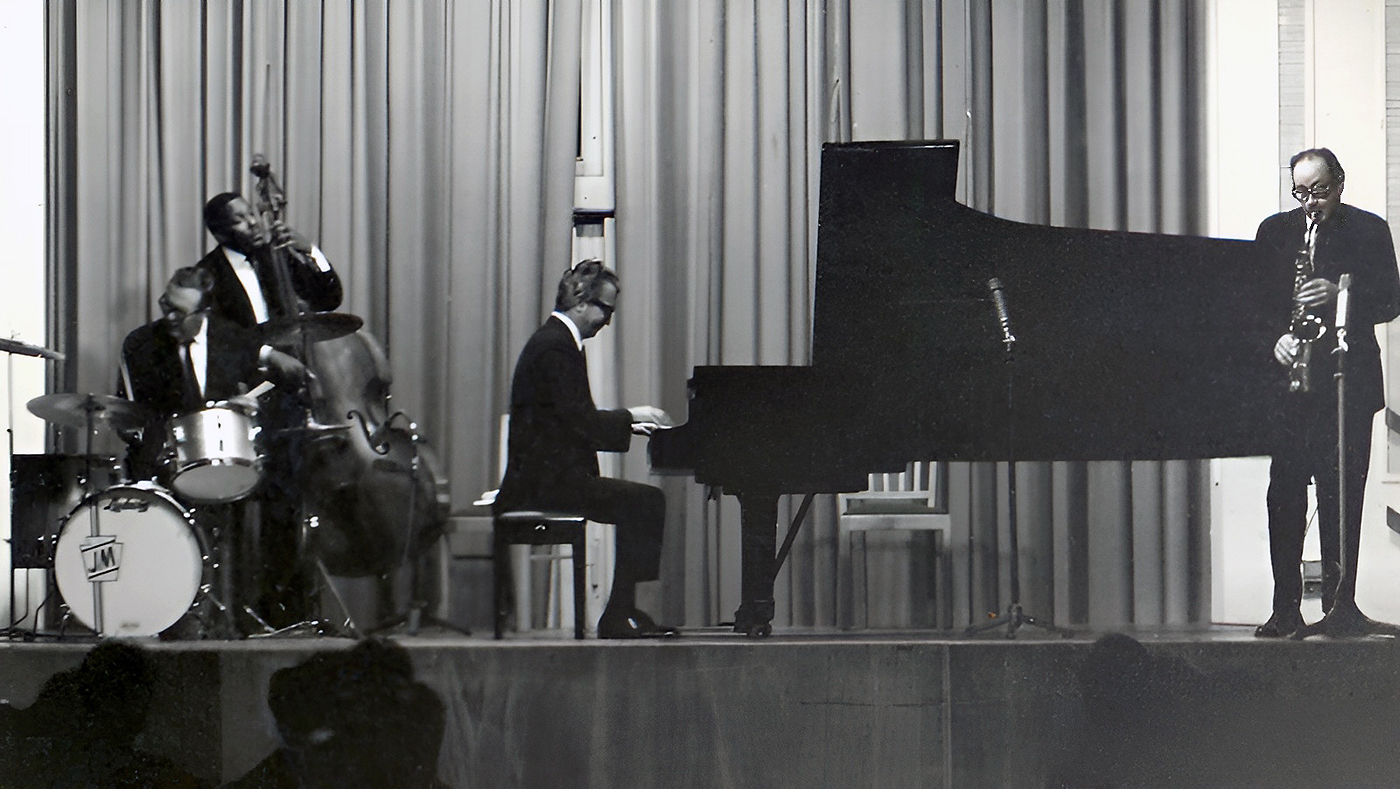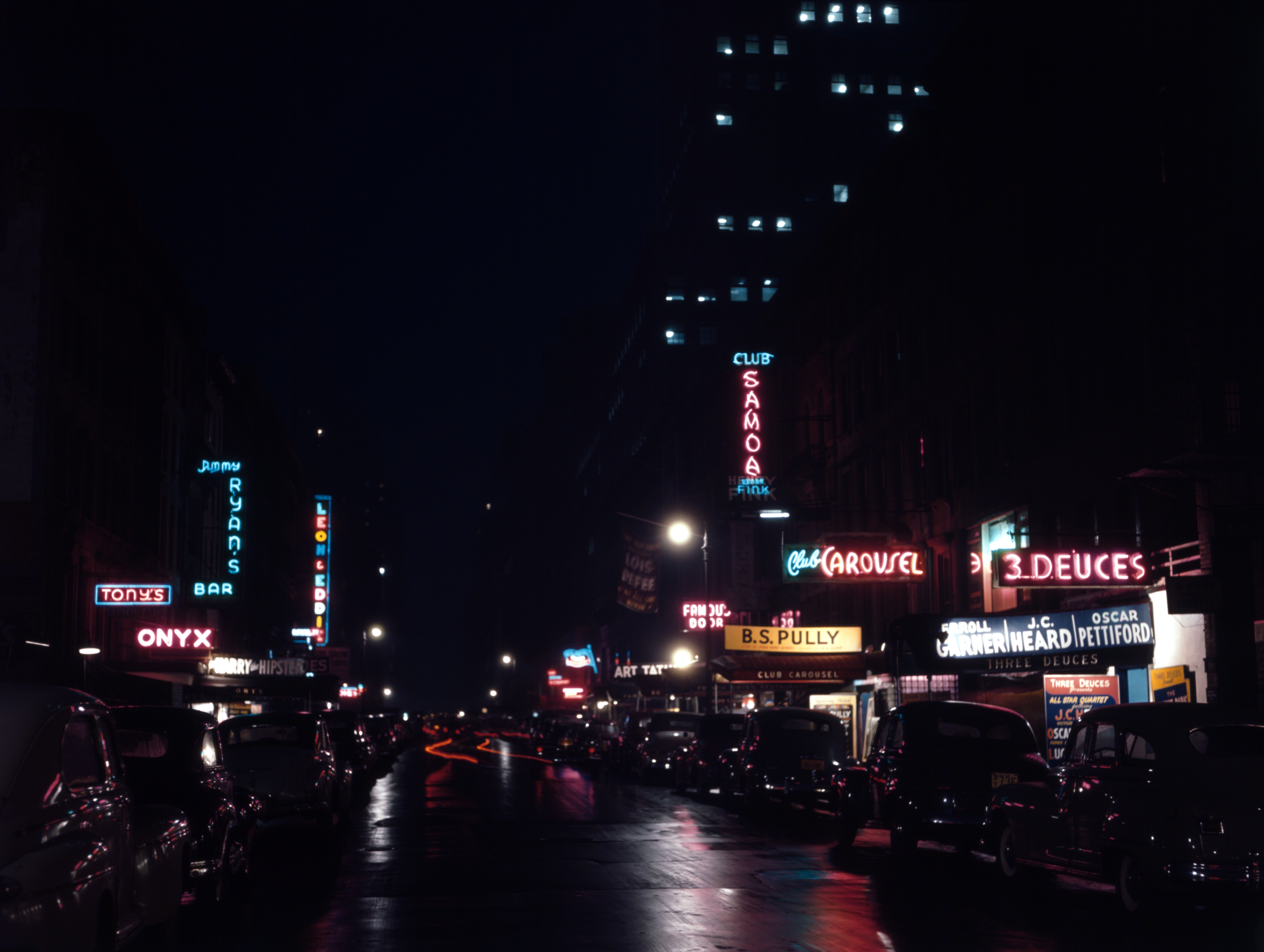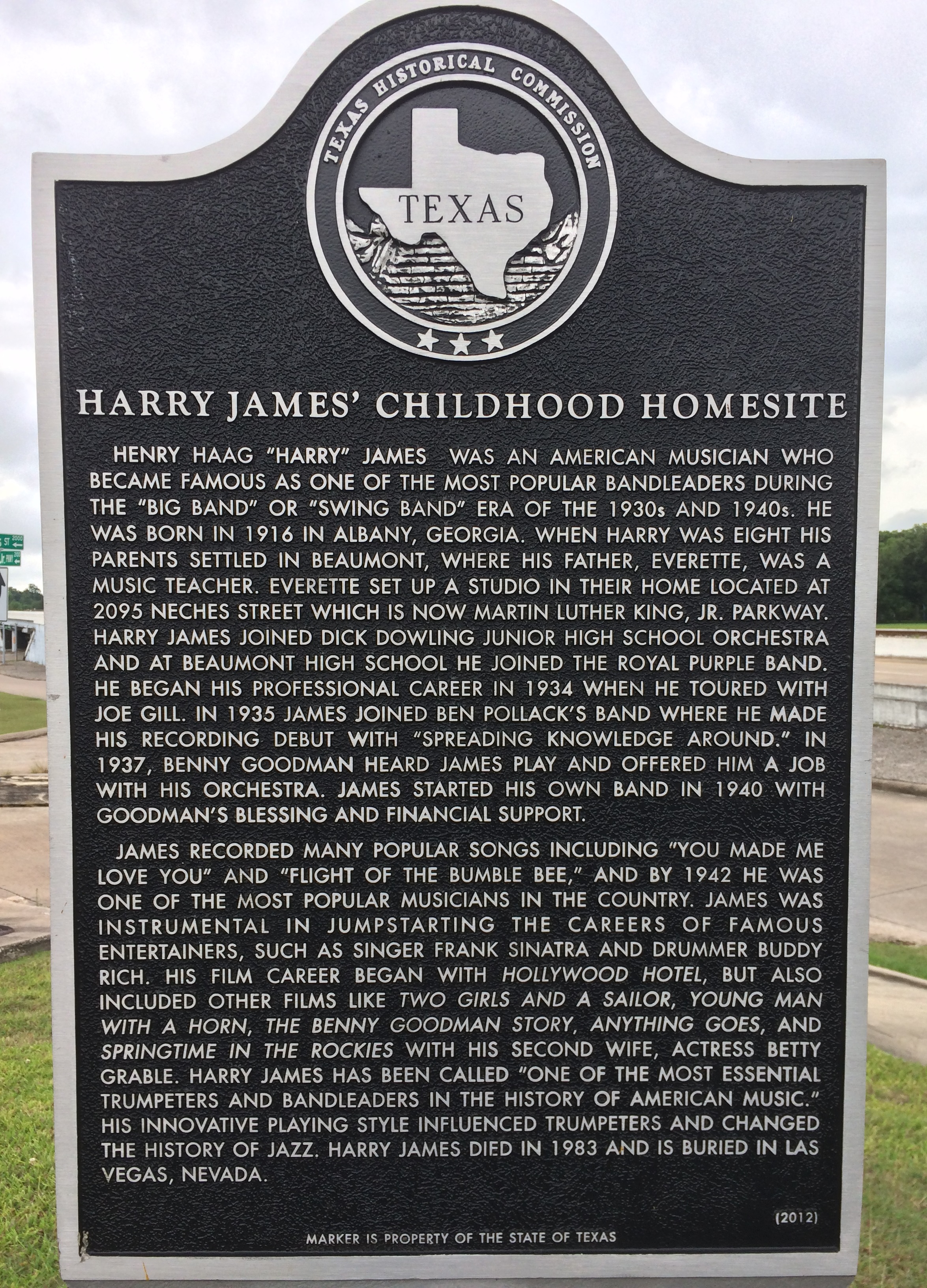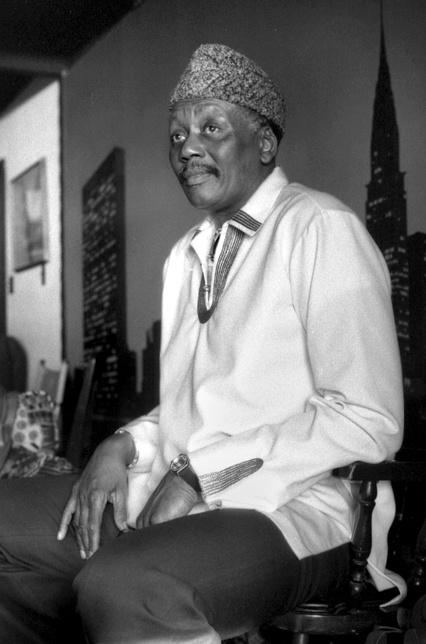|
Perdido (song)
"Perdido" is a jazz standard composed by Juan Tizol that was recorded on December 3, 1941 by Duke Ellington. However, it is the January 21, 1942, recording of the song on the Victor label by the Ellington orchestra, of which Tizol was a member, that is regarded as the original recording. In 1944, Ervin Drake and Hans Lengsfelder were hired to write lyrics for the song. Background "Perdido" is Spanish and means ''lost'', but also sloppy or indecent. The song refers to Perdido Street in New Orleans. Ella Fitzgerald recording "Perdido" was not usually sung with the Ellington band, the exception being Ella Fitzgerald on her 1957 album '' Ella Fitzgerald Sings the Duke Ellington Songbook''. Other recordings Many others recorded the song, including: * Sarah Vaughan * Dinah Washington *Art Tatum *Quincy Jones *The Charlie Parker Quintet * Dave Brubeck *Charles Mingus * Randy Weston * Erroll Garner *Bill Doggett * Harry James *Enoch Light Enoch Henry Light (August 18, 1907 – Ju ... [...More Info...] [...Related Items...] OR: [Wikipedia] [Google] [Baidu] |
Juan Tizol
Juan Tizol Martínez (22 January 1900 – 23 April 1984) was a Puerto Rican jazz trombonist and composer. He is best known as a member of Duke Ellington's big band, and as the writer of the jazz standards " Caravan", "Pyramid", and " Perdido". Biography Tizol was born in Vega Baja, Puerto Rico. Music was a large part of his life from an early age. His first instrument was the violin, but he soon switched to valve trombone, the instrument he played throughout his career. His musical training came mostly from his uncle Manuel Tizol, who was the director of the municipal band and the symphony in San Juan. Throughout his youth, Tizol played in his uncle's band and also gained experience by playing in local operas, ballets and dance bands. In 1920, Tizol joined a band that was traveling to the United States to work in Washington, D.C. The group eventually made it to Washington (traveling as stowaways) and established residence at the Howard Theater, where they played for tou ... [...More Info...] [...Related Items...] OR: [Wikipedia] [Google] [Baidu] |
Dave Brubeck
David Warren Brubeck (; December 6, 1920 – December 5, 2012) was an American jazz pianist and composer. Often regarded as a foremost exponent of cool jazz, Brubeck's work is characterized by unusual time signatures and superimposing contrasting rhythms, meters, and tonalities. Born in Concord, California, Brubeck was drafted into the US Army, but was spared from combat service when a Red Cross show he had played at became a hit. Within the US Army, Brubeck formed one of the first racially diverse bands. In 1951, Brubeck formed the Dave Brubeck Quartet, which kept its name despite shifting personnel. The most successful—and prolific—lineup of the quartet was the one between 1958 and 1968. This lineup, in addition to Brubeck, featured saxophonist Paul Desmond, bassist Eugene Wright and drummer Joe Morello. A U.S. Department of State-sponsored tour in 1958 featuring the band inspired Brubeck to record the 1959 album ''Time Out''. Despite its esoteric theme and contrarian ti ... [...More Info...] [...Related Items...] OR: [Wikipedia] [Google] [Baidu] |
Bebop Jazz Standards
Bebop or bop is a style of jazz developed in the early-to-mid-1940s in the United States. The style features compositions characterized by a fast tempo, complex chord progressions with rapid chord changes and numerous changes of key, instrumental virtuosity, and improvisation based on a combination of harmonic structure, the use of scales and occasional references to the melody. Bebop developed as the younger generation of jazz musicians expanded the creative possibilities of jazz beyond the popular, dance-oriented swing music-style with a new "musician's music" that was not as danceable and demanded close listening.Lott, Eric. Double V, Double-Time: Bebop's Politics of Style. Callaloo, No. 36 (Summer, 1988), pp. 597–605 As bebop was not intended for dancing, it enabled the musicians to play at faster tempos. Bebop musicians explored advanced harmonies, complex syncopation, altered chords, extended chords, chord substitutions, asymmetrical phrasing, and intricate melodies. B ... [...More Info...] [...Related Items...] OR: [Wikipedia] [Google] [Baidu] |
1940s Jazz Standards
Year 194 ( CXCIV) was a common year starting on Tuesday (link will display the full calendar) of the Julian calendar. At the time, it was known as the Year of the Consulship of Septimius and Septimius (or, less frequently, year 947 ''Ab urbe condita''). The denomination 194 for this year has been used since the early medieval period, when the Anno Domini calendar era became the prevalent method in Europe for naming years. Events By place Roman Empire * Emperor Septimius Severus and Decimus Clodius Septimius Albinus Caesar become Roman Consuls. * Battle of Issus: Septimius Severus marches with his army (12 legions) to Cilicia, and defeats Pescennius Niger, Roman governor of Syria. Pescennius retreats to Antioch, and is executed by Severus' troops. * Septimius Severus besieges Byzantium (194–196); the city walls suffer extensive damage. Asia * Battle of Yan Province: Warlords Cao Cao and Lü Bu fight for control over Yan Province; the battle lasts for ove ... [...More Info...] [...Related Items...] OR: [Wikipedia] [Google] [Baidu] |
1941 Songs
Events Below, the events of World War II have the "WWII" prefix. January * January–August – 10,072 men, women and children with mental and physical disabilities are asphyxiated with carbon monoxide in a gas chamber, at Hadamar Euthanasia Centre in Germany, in the first phase of mass killings under the Action T4 program here. * January 1 – Thailand's Prime Minister Plaek Phibunsongkhram decrees January 1 as the official start of the Thai solar calendar new year (thus the previous year that began April 1 had only 9 months). * January 3 – A decree (''Normalschrifterlass'') promulgated in Germany by Martin Bormann, on behalf of Adolf Hitler, requires replacement of blackletter typefaces by Antiqua (typeface class), Antiqua. * January 4 – The short subject ''Elmer's Pet Rabbit'' is released, marking the second appearance of Bugs Bunny, and also the first to have his name on a title card. * January 5 – WWII: Battle of Bardia in Libya: Australian an ... [...More Info...] [...Related Items...] OR: [Wikipedia] [Google] [Baidu] |
Enoch Light
Enoch Henry Light (August 18, 1907 – July 31, 1978) was an American classically trained violinist, danceband leader, and recording engineer. As the leader of various dance bands that recorded as early as March 1927 and continuing through at least 1940, Light and his band primarily worked in various hotels in New York. For a time in 1928 he also led a band in Paris. In the 1930s Light also studied conducting with the French conductor Maurice Frigara in Paris. Throughout the 1930s, Light and his outfits were steadily employed in the generally more upscale hotel restaurants and ballrooms in New York that catered to providing polite ambiance for dining and functional dance music of current popular songs rather than out-and-out jazz. At some point his band was tagged The Light Brigade and they often broadcast over radio live from the Hotel Taft in New York, where they had a long residency. Through 1940, Light and his band recorded for various labels including Brunswick, ARC, Vocal ... [...More Info...] [...Related Items...] OR: [Wikipedia] [Google] [Baidu] |
Harry James
Harry Haag James (March 15, 1916 – July 5, 1983) was an American musician who is best known as a trumpet-playing band leader who led a big band from 1939 to 1946. He broke up his band for a short period in 1947 but shortly after he reorganized and was active again with his band from then until his death in 1983. He was especially known among musicians for his technical proficiency as well as his tone, and was influential on new trumpet players from the late 1930s into the 1940s. He was also an actor in a number of films that usually featured his band. Early life Harry James was born in Albany, Georgia, United States, the son of Everett Robert James, a bandleader in a traveling circus, the Mighty Haag Circus, and Myrtle Maybelle (Stewart), an acrobat and horseback rider. He started performing with the circus at an early age, first as a contortionist at age of four, then playing the snare drum in the band from about the age of six. It was at this age that James was almost t ... [...More Info...] [...Related Items...] OR: [Wikipedia] [Google] [Baidu] |
Bill Doggett
William Ballard Doggett (February 16, 1916 – November 13, 1996) was an American pianist and organist. He began his career playing swing music before transitioning into rhythm and blues. Best known for his instrumental compositions " Honky Tonk" and "Hippy Dippy", Doggett was a pioneer of rock and roll. He worked with the Ink Spots, Johnny Otis, Wynonie Harris, Ella Fitzgerald, and Louis Jordan. Biography Doggett was born in Philadelphia. During the 1930s and early 1940s he worked for Lucky Millinder, Frank Fairfax and arranger Jimmy Mundy. In 1942 he was hired as the Ink Spots' pianist and arranger. In 1951, Doggett organized his own trio and began recording for King Records. His best known recording is " Honky Tonk", a rhythm and blues hit of 1956, which sold four million copies (reaching No. 1 R&B and No. 2 Pop), and which he co-wrote with Billy Butler. The track topped the US '' Billboard'' R&B chart for over two months. He also arranged for many bandlea ... [...More Info...] [...Related Items...] OR: [Wikipedia] [Google] [Baidu] |
Erroll Garner
Erroll Louis Garner (June 15, 1921 – January 2, 1977) was an American jazz pianist and composer known for his swing playing and ballads. His instrumental ballad " Misty", his best-known composition, has become a jazz standard. It was first recorded in 1956 with Mitch Miller and his orchestra, and played a prominent part in the motion picture ''Play Misty for Me''. Scott Yanow of Allmusic calls him "one of the most distinctive of all pianists" and a "brilliant virtuoso." He received a star on the Hollywood Walk of Fame at 6363 Hollywood Blvd. His live album '' Concert by the Sea'' first released in 1955, sold over 1 million copies by 1958, and Yanow's opinion on the album is that it "made such a strong impression that Garner was considered immortal from then on." Life and career Garner was born, along with twin brother Ernest in Pittsburgh, Pennsylvania on June 15, 1921, the youngest of six children. He attended George Westinghouse High School (as did fellow pianists Billy St ... [...More Info...] [...Related Items...] OR: [Wikipedia] [Google] [Baidu] |
Randy Weston
Randolph Edward "Randy" Weston (April 6, 1926 – September 1, 2018) was an American jazz pianist and composer whose creativity was inspired by his ancestral African connection. Weston's piano style owed much to Duke Ellington and Thelonious Monk, whom he cited in a 2018 video as among pianists he counted as influences, as well as Count Basie, Nat King Cole and Earl Hines."Randy Weston talks about his new solo double CD Sound" YouTube video, March 27, 2018. Beginning in the 1950s, Weston worked often with trombonist and arranger . Described as "America's African Musical Ambassador", Weston once said: "What I do I do ... [...More Info...] [...Related Items...] OR: [Wikipedia] [Google] [Baidu] |
Charles Mingus
Charles Mingus Jr. (April 22, 1922 – January 5, 1979) was an American jazz upright bassist, pianist, composer, bandleader, and author. A major proponent of collective improvisation, he is considered to be one of the greatest jazz musicians and composers in history,See the 1998 documentary ''Triumph of the Underdog'' with a career spanning three decades and collaborations with other jazz musicians such as Louis Armstrong, Duke Ellington, Charlie Parker, Dizzy Gillespie, and Herbie Hancock. Mingus' compositions continue to be played by contemporary musicians ranging from the repertory bands Mingus Big Band, Mingus Dynasty, and Mingus Orchestra, to the high school students who play the charts and compete in the Charles Mingus High School Competition. In 1993, the Library of Congress acquired Mingus' collected papers—including scores, sound recordings, correspondence and photos—in what they described as "the most important acquisition of a manuscript collection relating t ... [...More Info...] [...Related Items...] OR: [Wikipedia] [Google] [Baidu] |
Charlie Parker
Charles Parker Jr. (August 29, 1920 – March 12, 1955), nicknamed "Bird" or "Yardbird", was an American jazz saxophonist, band leader and composer. Parker was a highly influential soloist and leading figure in the development of bebop, a form of jazz characterized by fast tempos, virtuosic technique, and advanced harmonies. Parker was an extremely brilliant virtuoso and introduced revolutionary rhythmic and harmonic ideas into jazz, including rapid passing chords, new variants of altered chords, and chord substitutions. Primarily a player of the alto saxophone, Parker's tone ranged from clean and penetrating to sweet and somber. Parker acquired the nickname "Yardbird" early in his career on the road with Jay McShann. This, and the shortened form "Bird", continued to be used for the rest of his life, inspiring the titles of a number of Parker compositions, such as "Yardbird Suite", "Ornithology", "Bird Gets the Worm", and "Bird of Paradise". Parker was an icon for the hipster ... [...More Info...] [...Related Items...] OR: [Wikipedia] [Google] [Baidu] |







